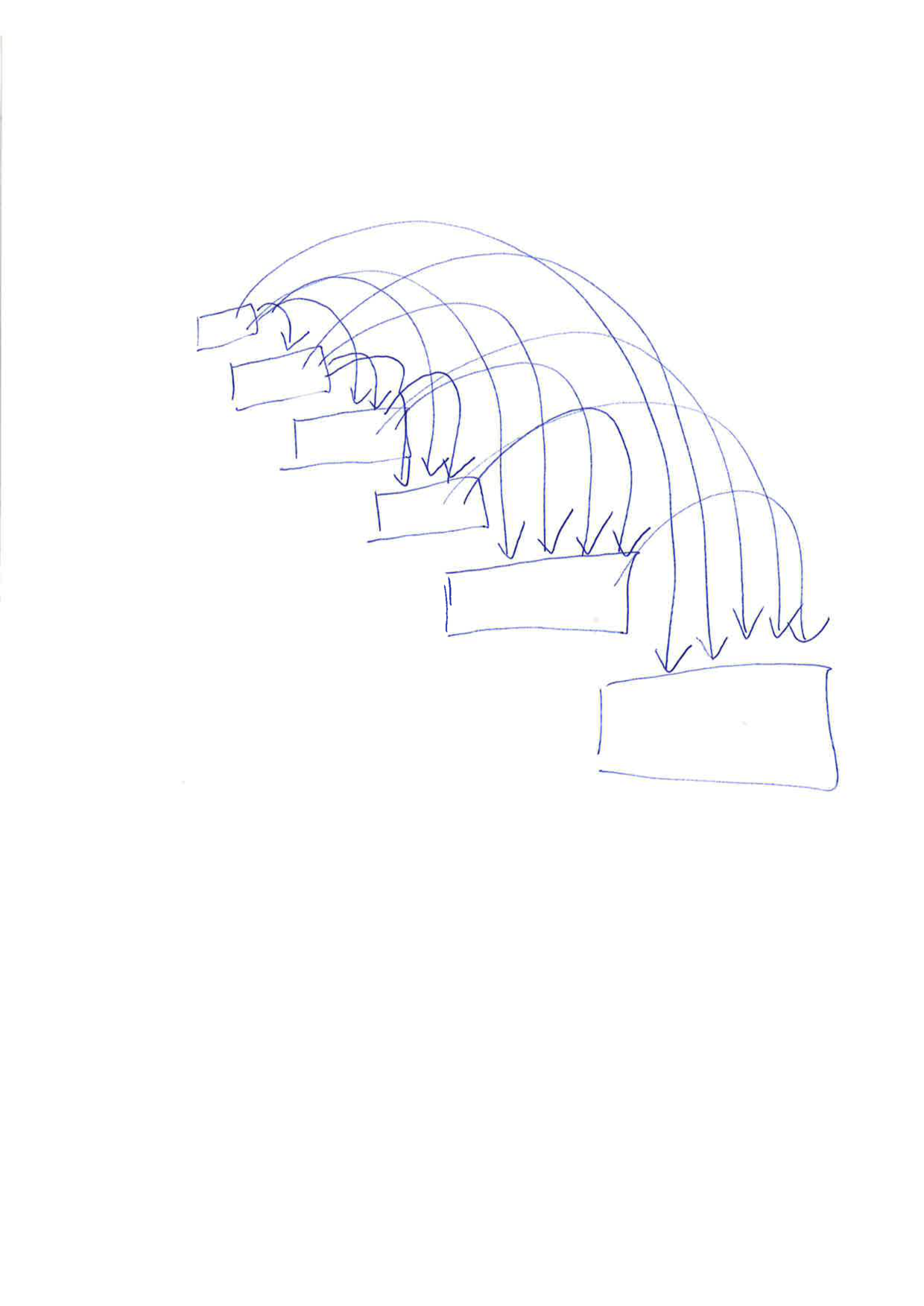An algorithm, drawn by a 42-year-old female professor of sociology in the US.

Yeah so please how an algorithm works. How an algorithm works? Yes. This is a lot of pressure. No pressure. Yeah, no pressure. No. Yeah. It's a drawing. [longer pause - drawing noises] Can you say what the boxes are? Sorry, what I'm trying to visualize here is a little bit of information and then more information is added to that and more and more to eventually create a collective that continues to feed on itself. I'm terrible with the artistic piece. I'm probably better, but I was thinking about like arrows. So like this goes here and this goes here. So on and so forth. Where have you heard about algorithms? I suppose I think about them with relation to like say Facebook. How Facebook decides which of your friends' timelines you see or what pops up in your feed. So I think about it as the more information I give to an online application, the more information it then uses to create new interfaces for me. Okay, great. For better and for worse. [laughs] Okay, thank you. Can you say more about that? Well, so if I searched for a gray mid century modern sofa because that is what I want to purchase, obviously all the applications that I'm using are going to pick up on that and then I'm going to get ads for that. So sometimes that actually works to my favor because I may end up finding the gray mid century modern sofa that I was looking for. I am implicitly consenting to information being elicited that maybe doesn't ultimately work in my favor. That I think is a more imaginary harm. Not imaginary, I mean for some people it's very real. I'm not engaged in any illegal activity. I'm white, I'm upper middle class. I have a stable job. I am not at a lot of risks, but there are those of us who the more information we give could put us at risk. All right thank you.